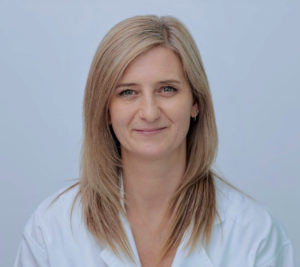Assoc. Prof. Jane Oliaro: Improving CAR-T cell therapy outcomes for patients with for aggressive lymphoma and multiple myeloma

T-cells are a type of white blood cell that work as the body’s natural disease fighters, combating viruses and bacteria.
In CAR T-cell therapy, or “chimeric antigen receptor (CAR) T-cell therapy”, a person’s T cells are transformed into cancer fighters. After the T-cells are extracted from a person’s blood, scientists in the lab then insert structures called CARs (chimeric antigen receptors) into the T cells, turbocharging them to identify and destroy cancer cells throughout the body.
To date, CAR T-cell therapy has been effective in improving outcomes for some previously incurable blood cancers. However, despite the promise of this therapy, some patients fail to respond to CAR T-cell therapy, or relapse following treatment and other blood cancers haven’t responded as well to CAR T-cell therapy. There is great need to improve these response rates.
In her project, A/Prof Jane Oliaro is working to dramatically improve CAR T-cell therapy outcomes for patients with lymphoma and multiple myeloma.
Jane’s project will focus on improving CAR T-cell effectiveness by incorporating it with a small molecule drug that can directly kill the cancer cells and potentially boost the anti-cancer activity of the CAR T-cells. Jane and her team will leverage their expertise in basic and preclinical research to investigate the potential of this combination therapy in dramatically improving CAR T-cell therapy outcomes for patients with lymphoma and multiple myeloma.
About Jane
Jane is a Group Leader in the Centre for Cancer Immunotherapy and Chief Scientist for the Centre of Excellence in Cellular Immunotherapy Translation Laboratory at the Peter MacCallum Cancer Centre in Melbourne, Australia. Jane completed a BSc (Hons) at Monash University in Melbourne, a PhD at Massey University in New Zealand, followed by postdoctoral training in France (INSERM, Montpellier) and Australia (Peter Mac).
Jane’s research program using a range of immune-based assays, genetic screening and preclinical models to dissect the complex interplay between the immune system and cancer, with a particular focus on tumor immune evasion and resistance to immunotherapies such as checkpoint blockade and CAR-T cell therapy.
She also leads a preclinical program focused on the development of novel cell-based immunotherapies for translation into pilot clinical trials through the Centre of Excellence in Cellular Immunotherapy.
Last updated on January 30th, 2023
Developed by the Leukaemia Foundation in consultation with people living with a blood cancer, Leukaemia Foundation support staff, haematology nursing staff and/or Australian clinical haematologists. This content is provided for information purposes only and we urge you to always seek advice from a registered health care professional for diagnosis, treatment and answers to your medical questions, including the suitability of a particular therapy, service, product or treatment in your circumstances. The Leukaemia Foundation shall not bear any liability for any person relying on the materials contained on this website.